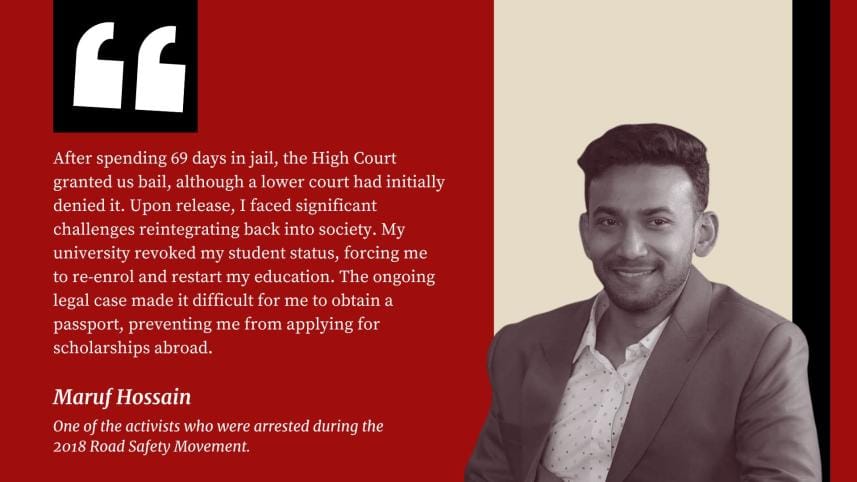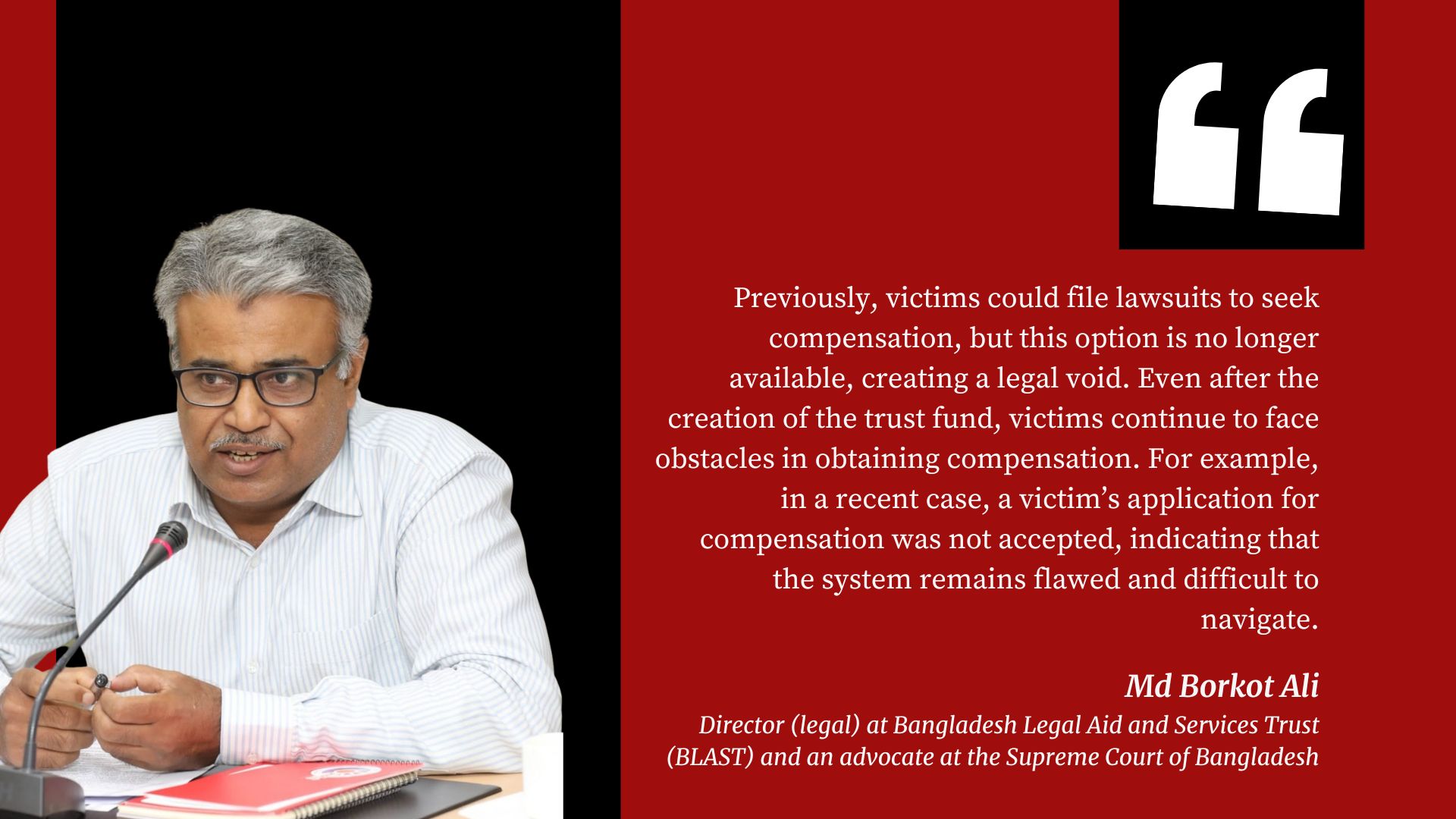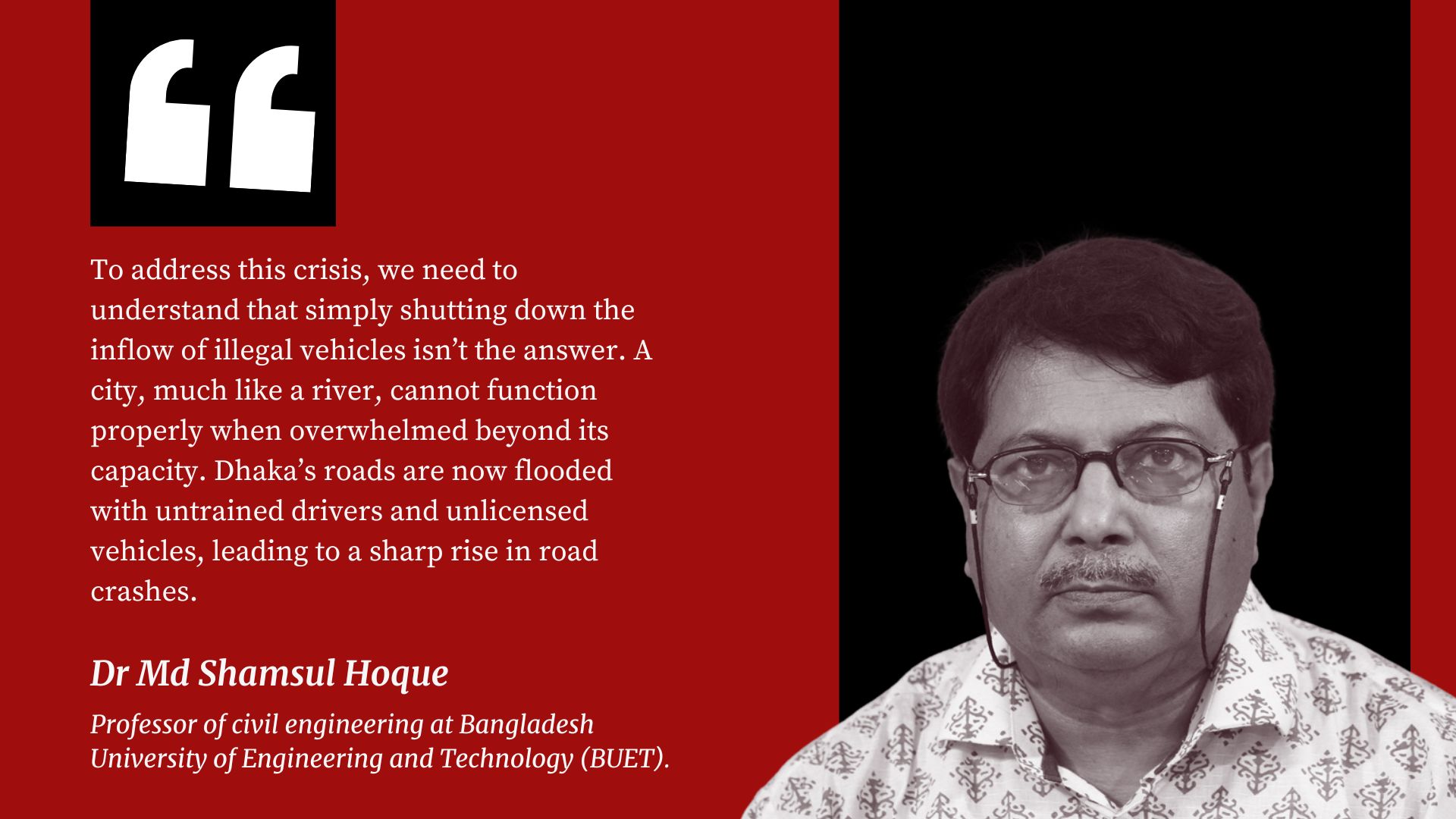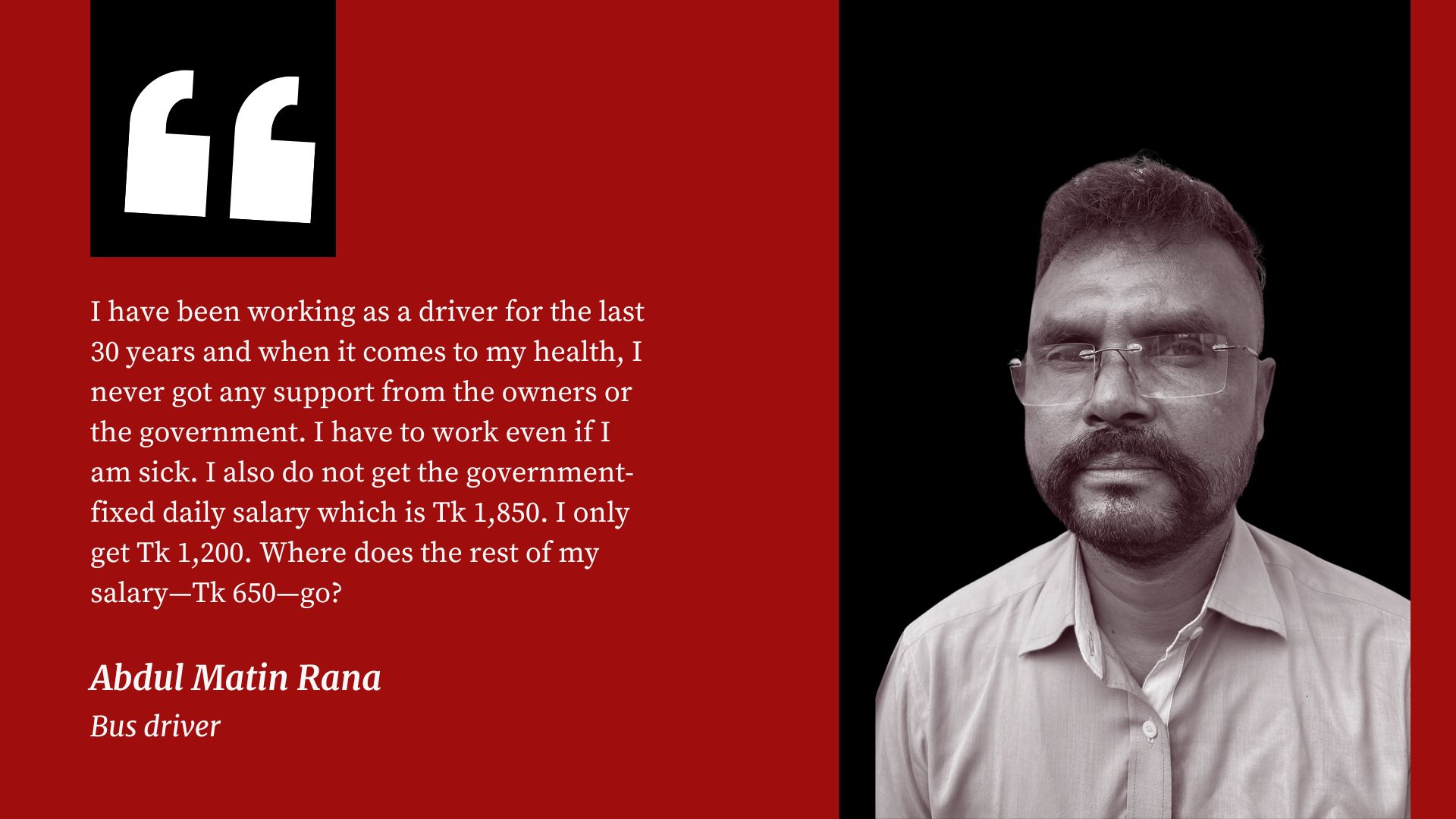Efforts to bring order on the roads will continue

I recently graduated with a degree in computer science from a private university in Chattogram. As a student, I was actively involved in a student organisation, where we frequently discussed the legitimate demands of students. In 2018, I became deeply engaged in the Road Safety Movement. This movement was not only about making our roads safer but also about fighting against the irregularities and corruption in various sectors and agencies, particularly the Bangladesh Road Transport Authority (BRTA). It was also a call for broader reforms in the country.
During the movement, we proposed a comprehensive roadmap to resolve the traffic congestion in our densely populated urban areas. We advocated for the creation of separate lanes for emergency vehicles, rickshaws, and buses, enforcement of designated bus stops, and issuance of proper driving licences, all of which could significantly improve traffic conditions. However, we faced numerous obstacles from the government at the time. It became evident that the Awami League government had allowed irregularities in the transport sector to persist, creating avenues for widespread corruption.
On August 6, 2024, we organised a rally at Chattogram Press Club to protest the attacks on students by members of the Bangladesh Chhatra League (BCL) and police. Before we could even put up our banners, police, provoked by the BCL, arrested four of us. Many others were also detained under the Digital Security Act (DSA) during this period.
Throughout the movement, we did not block roads or call for strikes. Our protest was so peaceful that police found it difficult to file legitimate charges against us. After much deliberation, the officer-in-charge decided to charge us under Section 57 (2) of the DSA, despite not following the proper legal provisions. Upon reviewing the law, I discovered that arrests under this section cannot be made without prior allegations—and there were none against us. The charges were made solely to harass and suppress us, which eventually stifled the movement.
After spending 69 days in jail, the High Court granted us bail, although a lower court had initially denied it. Upon release, I faced significant challenges reintegrating back into society. My university revoked my student status, forcing me to re-enrol and restart my education. The ongoing legal case made it difficult for me to obtain a passport, preventing me from applying for scholarships abroad. It took seven to eight months, and a writ petition to the High Court, to finally secure my passport. The case has also barred me from applying for government jobs, and although there is a permanent stay on the case from the High Court, it remains unresolved. We have endured significant hardships, but has anything really changed?
Now, after the fall of the Sheikh Hasina regime, there is hope for change in the new Bangladesh. Those of us involved in the Road Safety Movement are working to unite once again. We have established an organisation called Nirapad Sarak Andolon. Through this organisation, we aim to address the irregularities on our roads, challenge the road syndicate, and raise awareness to restore order. We have met with the traffic department and the police commissioner, and we are working to engage with the transport owners' associations. Restoring order on the roads is a time-consuming process, but our efforts will continue.
Maruf Hossain is one of the activists who were arrested during the 2018 Road Safety Movement.
Views expressed in this article are the author's own.
Follow The Daily Star Opinion on Facebook for the latest opinions, commentaries and analyses by experts and professionals. To contribute your article or letter to The Daily Star Opinion, see our guidelines for submission.




 For all latest news, follow The Daily Star's Google News channel.
For all latest news, follow The Daily Star's Google News channel. 


Comments